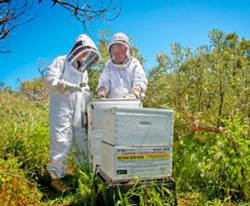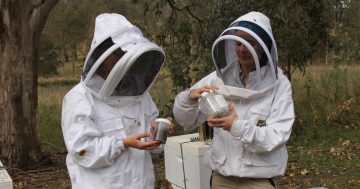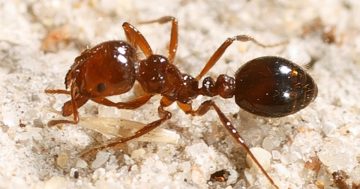 The Department of Primary Industries and Regional Development is reminding bee-keepers of the importance of maintaining traceability records.
The Department of Primary Industries and Regional Development is reminding bee-keepers of the importance of maintaining traceability records.
As part of its Operation Flower Meadow biosecurity campaign, the Department officers are visiting commercial and recreational beekeepers throughout the agriculture region to ensure they are keeping up-to-date with movement records and identification requirements.
Coordinator of Biosecurity Compliance at the Department, Paul Cassidy said the operation would help protect the State’s pollination and honey industries from the risk of bee pests and diseases.
“The recent detection of the significant pest, Varroa mite, in the Eastern States has highlighted how valuable this information is to aid a rapid and effective emergency response,” Mr Cassidy said.
“With bee threats on our doorstep, the importance of apiary traceability to aid early detection and containment of a biosecurity threat has never been so clear.”
He said under the Western Australian Biosecurity and Agriculture Management Act 2007 all beekeepers must keep written records of the establishment, movement and sale of all apiaries.
“Bees must also be kept in a device where frames are easily removable for the purpose of inspection,” Mr Cassidy said.
“Apiarists must not supply, lease or otherwise dispose of an apiary or part of an apiary to another person without confirming the person is a registered beekeeper.”
He said a crucial component was that all beekeepers registered with the Department, upon which they were issued a certificate and provided with their unique brand identifier.
“This registration ID must be burnt, stamped, carved or scored onto each hive box, so they are clearly identifiable — not correctly identifying hives or failing to keep movement records can result in fines,” Mr Cassidy said.









